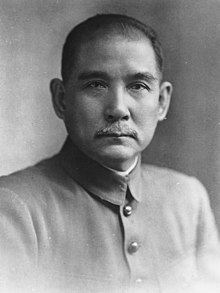Sun Yat-sen, also known as Sun Zhongshan, is widely regarded as the founding father of modern China. Born on November 12, 1866, in Cuiheng Village, Guangdong Province, Sun played a pivotal role in overthrowing the Qing Dynasty and establishing the Republic of China. His revolutionary ideas, leadership, and unwavering determination have left an indelible mark on Chinese history. This article aims to delve into the life, contributions, and enduring legacy of Sun Yat-sen.
Sun Yat-sen was born into a peasant family and had a humble upbringing. Despite facing financial difficulties, he managed to pursue an education and developed an early interest in Western philosophy and political ideas. After attending various schools in China, Sun went on to study medicine at the Hong Kong College of Medicine for Chinese. His exposure to Western medicine and revolutionary ideas during his time in Hong Kong had a profound impact on his future endeavors.
The Xingzhonghui and Revolutionary Activities: In 1894, Sun co-founded the Xingzhonghui (Revive China Society) with a group of like-minded individuals. The society aimed to overthrow the Qing Dynasty and establish a modern republic in China. Sun’s revolutionary activities gained momentum, leading to several failed uprisings against the Qing government. However, these setbacks did not deter him, and he continued to refine his revolutionary ideology and seek support from both within China and overseas.
Sun Yat-sen’s political philosophy, encapsulated in the Three Principles of the People (sanmin zhuyi), formed the basis of his revolutionary vision for China. The principles are often summarized as nationalism, democracy, and the livelihood of the people. Sun believed that only through these principles could China become a prosperous and politically stable nation. His ideology attracted widespread support, particularly from intellectuals, students, and reform-minded individuals who yearned for a modernized China.
The 1911 Revolution and the Republic of China: In 1911, Sun Yat-sen’s efforts culminated in the successful Wuchang Uprising, a pivotal event that sparked a nationwide revolution against the Qing Dynasty. This uprising led to the collapse of the imperial system and the establishment of the Republic of China. Although Sun was initially elected as the provisional president, his presidency was marked by political turmoil and regional divisions, hampering the realization of his vision for a united and stable China.
Sun Yat-sen’s influence extends far beyond his lifetime. Despite facing numerous challenges, he dedicated his life to the pursuit of revolutionary ideals and the betterment of his country. His vision and political philosophy continue to resonate with generations of Chinese people. After his death in 1925, Sun was revered as a national hero and his mausoleum in Nanjing stands as a testament to his enduring legacy.
Sun Yat-sen’s contributions to modern China cannot be overstated. His role as the founding father of the Republic of China, his revolutionary ideology encapsulated in the Three Principles of the People, and his unwavering determination have shaped the course of Chinese history. Sun’s vision of a modernized, prosperous, and united China continues to inspire generations, and his legacy remains an integral part of the country’s identity. Sun Yat-sen’s remarkable journey and lasting impact cement his status as one of the most influential figures in Chinese history



















Add Comment